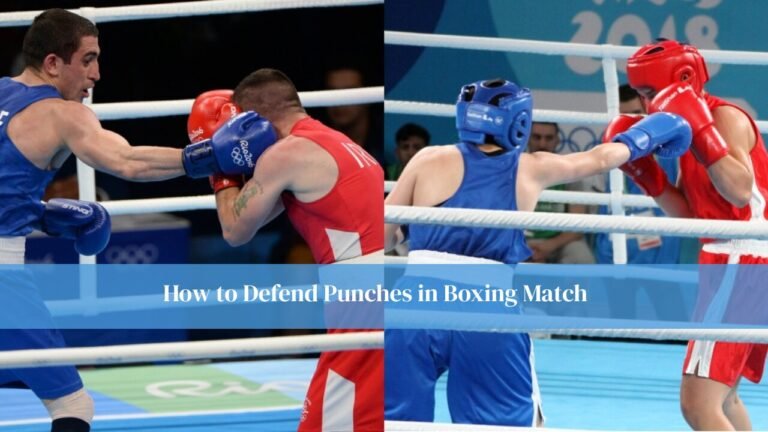Boxing is one of the most intense and physically demanding sports on the planet. The difference between winning and losing often comes down to more than just training, speed, or technique. Nutrition plays a critical role in determining a fighter’s energy, endurance, and ability to recover from grueling workouts. For that reason, understanding the best diet for boxers is essential for anyone who wants to maximize their potential in the ring.
A boxer’s body is both a weapon and a shield. Fueling it with the wrong foods can lead to sluggishness, poor endurance, and increased risk of injury, while the right nutrition plan can sharpen focus, improve stamina, and enhance recovery. Unlike recreational athletes, boxers must balance the demands of intense training with strict weight management, making dietary choices even more complex. This article provides a comprehensive look at what makes up an effective boxing diet, drawing on expert advice, real-world examples, and scientific evidence.
Key Takeaways
- Proper nutrition is critical for boxers to maintain energy, endurance, and recovery.
- Carbohydrates provide the main source of energy, supporting high-intensity training and preventing fatigue.
- Protein aids in muscle repair and growth, while healthy fats support long-lasting energy and hormone balance.
- Strategic meal timing and hydration enhance performance, recovery, and overall fight readiness.
Why Nutrition Matters So Much in Boxing
The intensity of boxing training is unlike most other sports. A single sparring session can burn anywhere from 800 to 1,200 calories, while a full training day that includes conditioning, bag work, and strength training can easily push energy expenditure past 3,000 calories. Without a carefully planned diet, fighters can quickly run into problems such as early fatigue, muscle breakdown, and poor recovery.
Nutrition impacts every element of a boxer’s performance. Carbohydrates are essential for explosive bursts of energy, while protein is critical for repairing muscle tissue damaged during heavy training. Fats support hormone balance and provide long-lasting energy. Beyond macronutrients, hydration and micronutrients play equally important roles in mental sharpness, coordination, and endurance.
In short, food is not just fuel it is a performance enhancer and a vital part of a boxer’s long-term career. Many world-class fighters attribute their success not only to their time in the gym but also to the discipline they maintain in the kitchen.
Carbohydrates The Main Energy Source for Fighters
For boxers, carbohydrates are the body’s preferred source of energy. During high-intensity training or competition, the body draws heavily on stored glycogen, which comes from carbs. When these stores are depleted, fatigue sets in quickly, reaction times slow, and overall performance declines. This is why most professional fighters ensure that roughly half of their daily calories come from high-quality carbohydrate sources.
Whole grains such as oats, brown rice, and quinoa provide sustained energy and are superior to refined options like white bread or sugary snacks, which cause spikes and crashes in blood sugar. Fruits are also indispensable for fighters, with bananas and oranges offering quick-digesting natural sugars along with valuable potassium to prevent cramping. Vegetables like spinach, broccoli, and sweet potatoes contribute not only energy but also essential vitamins and minerals that aid in recovery and immune support.
For example, many professional fighters, including Manny Pacquiao during his prime years, emphasized rice and sweet potatoes as staples in their diet, ensuring they had the glycogen needed for long training camps. A boxer who skimps on carbohydrates often struggles to finish sparring rounds at the same intensity as when they started, highlighting just how vital this macronutrient is.
Protein Building Blocks for Strength and Recovery
After long hours of training, muscles undergo micro-tears that must be repaired in order to grow stronger. Protein is the nutrient responsible for this process, and boxers require more than the average person to keep up with the wear and tear of their sport. Sports nutritionists typically recommend that fighters consume between 1.6 and 2.0 grams of protein per kilogram of body weight each day.
Lean meats such as chicken and turkey are common staples because they deliver high-quality protein without excessive fat. Fish, particularly salmon and tuna, provide not only protein but also omega-3 fatty acids, which reduce inflammation and aid in joint recovery. Eggs and Greek yogurt are convenient options that can be consumed at breakfast or as snacks. For plant-based fighters, beans, lentils, chickpeas, and tofu serve as excellent protein alternatives, though careful planning is needed to meet daily requirements.
A great example comes from heavyweight champion Anthony Joshua, who has often spoken about his high-protein diet that includes eggs, chicken, and plenty of fish to ensure he maintains muscle mass despite grueling two-a-day training sessions. Without adequate protein, boxers risk slower recovery times, reduced strength, and greater susceptibility to injuries.
Healthy Fats Long-Lasting Energy and Hormonal Support
While fats are often misunderstood in the context of athletic diets, they are essential for fighters. Healthy fats provide sustained energy, support brain function, and aid in the production of hormones such as testosterone, which are crucial for strength and endurance.
Boxers benefit most from unsaturated fats found in avocados, nuts, seeds, and olive oil. Fatty fish like mackerel and sardines are rich in omega-3 fatty acids, which combat inflammation and keep joints healthy despite the pounding they take during training. Coconut oil can also be a useful cooking fat, providing medium-chain triglycerides that the body can quickly convert into energy.
It is worth noting that fat should not dominate a boxer’s diet, but it should make up about 20 to 30 percent of total calories. Fighters who completely eliminate fat often struggle with hormone imbalances and reduced energy levels during extended training camps.
Timing When Boxers Should Eat for Optimal Performance
What a fighter eats is only half the story when they eat matters just as much. Strategic meal timing ensures that energy is available during training and recovery happens efficiently afterward.
Before workouts, most fighters consume a meal two to three hours beforehand, consisting of easily digestible carbs, lean protein, and a small amount of fat. For instance, a bowl of oatmeal with sliced banana and a spoonful of almond butter provides both quick and sustained energy. About 30 to 60 minutes before training, a lighter snack such as a smoothie or piece of whole grain toast with honey can top up glycogen stores without weighing the body down.
Immediately after training, the focus shifts to recovery. A combination of fast-digesting carbohydrates and protein within 30 minutes is ideal. This could be a protein shake blended with berries, or a simple chicken wrap with whole wheat bread. Later in the day, a more substantial meal including lean protein, vegetables, and complex carbs helps complete the recovery process.
Hydration also fits into this timing equation. Fighters should drink consistently throughout the day, aiming for three to four liters of water, and replace electrolytes after particularly intense or sweaty sessions.
A Sample Day on a Boxer’s Meal Plan
To better visualize how these principles come together, consider what a typical day of eating might look like for a professional fighter in training. Breakfast may start with oatmeal topped with chia seeds, sliced banana, and almond butter, offering a balance of carbs, healthy fats, and protein. A mid-morning snack of Greek yogurt with fresh berries provides an additional protein boost along with antioxidants.
Lunch could consist of grilled salmon, quinoa, and roasted vegetables, delivering a steady stream of protein, carbs, and vitamins. Before training, the fighter might enjoy a piece of whole grain toast with a drizzle of honey for fast energy. Post-training recovery could involve a protein shake blended with fruit to replenish glycogen and jump-start muscle repair. Dinner might include a chicken stir-fry with brown rice and broccoli, offering both fuel and micronutrients, while a small serving of cottage cheese with walnuts before bed ensures a slow release of protein overnight.
This type of diet is not about restriction—it is about balance, with each meal playing a role in supporting training and recovery.
Common Nutrition Mistakes Boxers Make
Despite their discipline in training, many fighters fall into common dietary traps. One mistake is cutting calories too drastically before a fight. While rapid weight cuts are common, they can lead to extreme fatigue, decreased punch resistance, and poor performance in the ring. Another mistake is relying heavily on supplements rather than real food. While protein powders and electrolyte drinks can be helpful, they should complement rather than replace whole foods.
Skipping carbohydrates is another frequent error, particularly among fighters who fear gaining weight. However, without sufficient carbs, endurance plummets and training quality suffers. Dehydration is another pitfall, especially close to weigh-ins. While short-term water manipulation is sometimes necessary, failing to rehydrate properly can leave a fighter dangerously depleted on fight night.
FAQs
What should boxers eat before a fight?
The best pre-fight meal is one that is balanced and easy to digest, typically eaten about three to four hours before competition. A common choice is grilled chicken with white rice and lightly steamed vegetables. This combination provides steady energy without causing stomach discomfort.
How many calories should a boxer eat each day?
Calorie needs vary depending on training volume, weight class, and individual metabolism. On average, fighters consume between 2,500 and 4,000 calories daily. Lighter fighters may require fewer, while heavyweights or those in intense training camps often need more.
Do supplements really help boxers?
Supplements can be useful, but they should never replace whole foods. Whey protein is convenient for recovery shakes, creatine may support strength and power, and omega-3 capsules can provide anti-inflammatory benefits. However, every supplement should be considered carefully, and ideally under the guidance of a sports nutritionist.
Can boxers follow a vegan diet?
Yes, boxers can thrive on a vegan diet, but it requires careful planning. Plant-based athletes must ensure they consume enough protein from sources like lentils, beans, tofu, and tempeh, as well as supplement with vitamin B12 and iron if necessary. Several successful professional fighters, including former heavyweight champion David Haye, have followed vegan diets.
How should boxers cut weight safely?
Safe weight cutting involves gradual calorie adjustments, increased cardio, and reducing sodium intake rather than extreme dehydration or starvation. Fighters should avoid last-minute drastic cuts, as these can lead to serious health risks. Working with a registered dietitian or nutrition coach is the safest approach.
Conclusion
The best diet for boxers is one that balances carbohydrates, protein, and healthy fats, while also paying attention to meal timing, hydration, and recovery. Fighters cannot afford to treat nutrition as an afterthought as it is as important as sparring, conditioning, or technical drills. A strong nutrition plan provides the fuel for training, the stamina to endure long fights, and the resilience to recover and grow stronger.
Whether you are an amateur stepping into the ring for the first time or a professional chasing titles, investing in your diet is one of the smartest moves you can make. By eating with intention, you can ensure that your body performs at its best when it matters most. Visit Boxing Essential to explore more.




